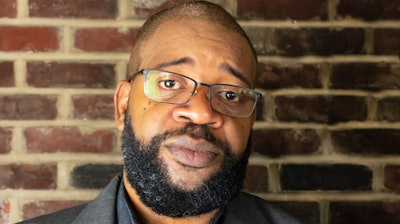More often than not, the commencement address is designed to be a sanitized rhetorical moment. Graduation speeches are not often written to make incisive interventions, despite the many ways that commencement speakers intone their words. A commencement signals a new beginning or a new start for graduates as they take their hard-earned degrees and begin the journey of professional trials and tribulations. Commencements are also ceremonial affairs, designed to celebrate achievement. Recently, storyteller and documentary historian Ken Burns realized these assignments and more at his address to 2024 graduates at Brandeis University.
 Dr. James B. Peterson
Dr. James B. Peterson
Commencement speeches have been a higher education tradition in the U.S. since the early 19th Century. The origins of these addresses date back to the establishment of American universities, where graduation ceremonies served as both a rite of passage and a public demonstration of the institution's educational values. Initially, these speeches were often delivered by faculty members or notable figures within the academic community.
Over time, commencement addresses have evolved. Contemporary graduations often feature prominent public figures, politicians, authors, and celebrities. These speakers signal a broader societal interest in these ceremonies. The themes of commencement speeches have remained relatively consistent, focusing on the future, personal and professional growth, and the responsibilities of citizenship. Speakers often aim to inspire and challenge graduates to think critically about their roles in society.
In this moment and with this history of commencement addresses in tow, Ken Burns’ words at Brandeis make a potent intervention. He deliberately dispensed with his documentarian neutrality and corralled his audience, and by extension, all of us, to consider the stakes and the state of discourse in an existentially critical juncture of this American experiment. For Burns, part of his journey as a storyteller and documenter of history has been to be “on the lookout” for the rhymes of history. According to Burns (via Mark Twain), history does not repeat itself so much as it rhymes with itself. Burns argues that identifying this poetry within history is one way to identify the power of our history to shape and inform the complexities of our contemporary malaise.
Burns tells us that the pursuit of happiness “happens . . . in the lifelong learning and perpetual improvement” offered at institutions of higher learning. He cites Abraham Lincoln at length, underscoring his “fundamental optimism” and the historical fact that he presided over the U.S.’ “near national suicide.” Burns leans into the contradictions of our nation’s history and concludes that:
“the isolation of those two oceans has also helped to incubate habits and patterns less beneficial to us: our devotion to money and guns and conspiracies, our certainty about everything, our stubborn insistence on our own exceptionalism blinding us to that which needs repair, especially with regard to race and ethnicity. Our preoccupation with always making the other wrong at an individual as well as a global level.”





















